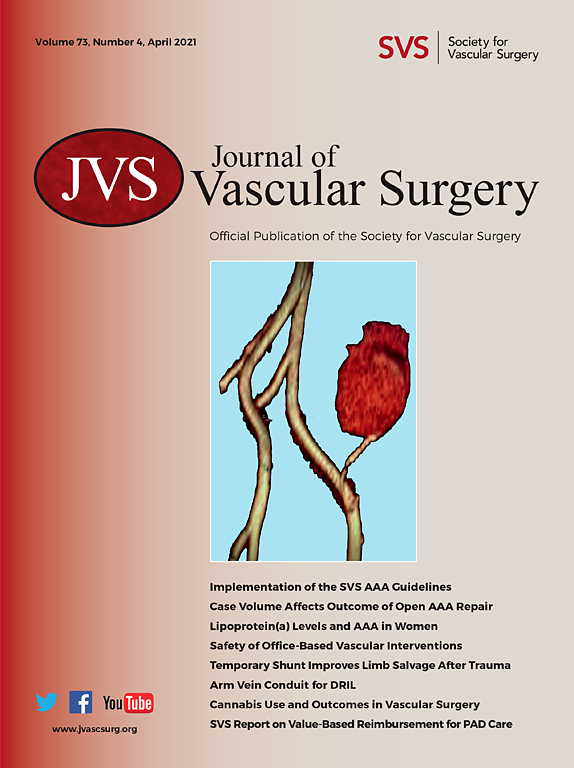|
Authors |
Abstract Background: Carotid artery atherosclerotic stenosis is a preventable major cause of stroke, but there is still a need for definition of high-risk plaque in asymptomatic patients who might benefit from interventional therapies. Several image markers are recommended to characterize unstable plaques. The measurement of serum biomarkers is a promising method to assist in decision making, but the lack of robust evidence in the carotid environment burdens their potential as a standard of care. The goal of this review was to offer an updated state-of-the-art study of available serum biomarkers with clinical implications, with focus on those that may predict carotid symptom development. Methods: The Cochrane Library and MEDLINE databases were searched (all until September 2018) for studies on carotid plaque and serum biomarkers of atherosclerosis. Nonhuman, basic science, and histology studies were excluded, focusing on clinical studies. Selected abstracts were screened to include the most relevant articles on atherosclerotic plaque presence, progression, instability or symptom development. Results: Some well-established biomarkers for coronary disease are not relevant to carotid atherosclerosis and other inflammatory biomarkers, lipids, interleukins, homocysteine, and adipokines may be useful in quantifying carotid disease-related risk. Some serum biomarkers combined with image features may assist vascular specialists in selecting patients at high risk for stroke and in need of intervention. Conclusions: Prospective studies applying a combination of biomarkers are essential to prove clinical usefulness. |
Altmetrics
|
|
Journal Journal of Vascular Surgery, January 2020, v.71, n.1, p.329-341 |
||
|
Publication date 2020-01-01 |
||
|
DOI |



